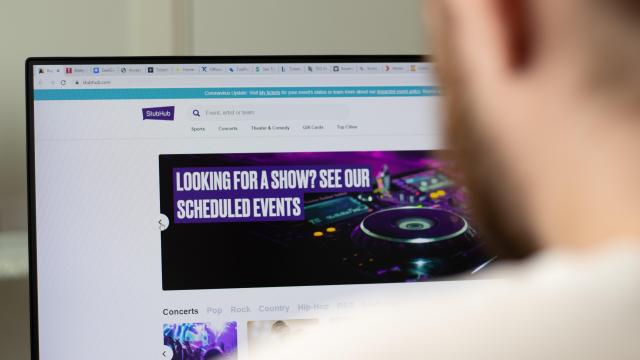It’s a bad day when you don’t get those concert tickets you had your heart set on. It’s arguably a worse day if you get scammed and your personal information gets stolen. It is definitely the worst day if both of those things happen at once.
Now that the pandemic is retreating from public consciousness and spring is here, more of us are feeling motivated to enjoy major events, from festivals, to Taylor Swift’s Eras tour, to sporting events— and you better believe the scammers have taken notice. Here are some tips to help you avoid getting ripped off when purchasing tickets (and we’re not referring to Ticketmaster fees).
Don’t let scammers play on your emotions
A good scammer is skilled at playing with your emotions, and the savviest among them tend to target the biggest events that sell out the fastest, because they know victims will be looking for “deals” or just looking to secure tickets quickly, and not necessarily taking their time or thinking straight. Be extra vigilant when shopping for tickets for one of these events — if you find a too-good-to-be-true deal from a reseller looking to immediately turn around hot tickets at less than face value because of “a family emergency,” it’s probably bullshit.
If you are reluctant to pass up a good thing, at least put them to the test. Ask them to sell you the tickets using PayPal goods and services, which protects both buyers and sellers from fraud. If they are stubborn about their preferred method of payment — if they only want to use a more anonymous (and scam-friendly) service, trust that they’re trying to rip you off.
Ask them to use PayPal goods and services, which protects both buyer and seller if any of them tries to be slick. Go ahead, we’ll wait.
Never buy tickets from a sponsored link
Sponsored links tend to show up high up in Google searches because someone is paying to put them there, and not because the algorithm has declared them trustworthy. Many fraudulent pages are prominently displayed in search results, so no matter how good the promises made in those headlines sound, think twice about buying event tickets by clicking a link, even if it appears to take you to a legit site like Ticketmaster. Instead, type the address into your search bar directly or scroll down to find a legit search result (and double-check the URL). Make sure you aren’t typing your real Ticketmaster username, password, and credit card information into a dummy version of the site.
The best way to avoid a scam — but also the costliest — is to buy from the official venue or their approved merchant. If you can only afford resale tickets (although they’re often even more expensive these days), stick with reputable names.
Double-check the details
Before you type in your credit card info, make sure the tickets you’re buying seem legit. Most venues offer a seating map online, so double-check that the seats on the tickets you’re buying actually exist on it, and that the price and description you are being offered match up with reality. It’s a simple thing to fake, but a high-volume scammer might not bother to ensure that those seats in row 17-B are actually there. If the venue offers digital tickets, which most now do, but someone is trying to sell you paper tickets — or vice-versa — that’s another red flag.
And last, but definitely not least, always use a credit card for your purchase, so you’ll be protected from a scam. Yes, the scammers may get to keep your money, but the card will likely negate the charge once you file a report.
What to do if you already bought fake tickets
It hurts, and your options are limited. But first: Always report a scam. It’ll help other people avoid the same trap, and hopefully deter the scammers from trying the same things again.
Notify your bank and see if it’s possible to reverse the charge for the transaction. If you used a credit card, file a fraud report (you may need to get a new credit card number too). If you’re concerned about how much info you’ve given out to a scammer, file an identity theft report.

Leave a Reply
You must be logged in to post a comment.